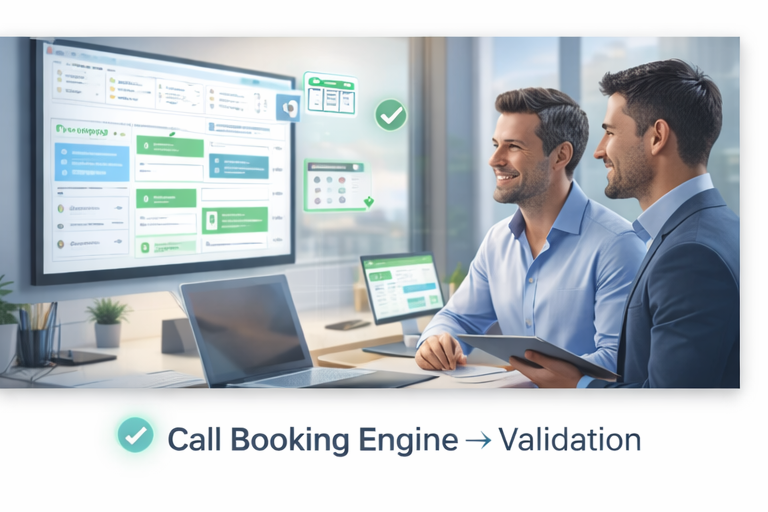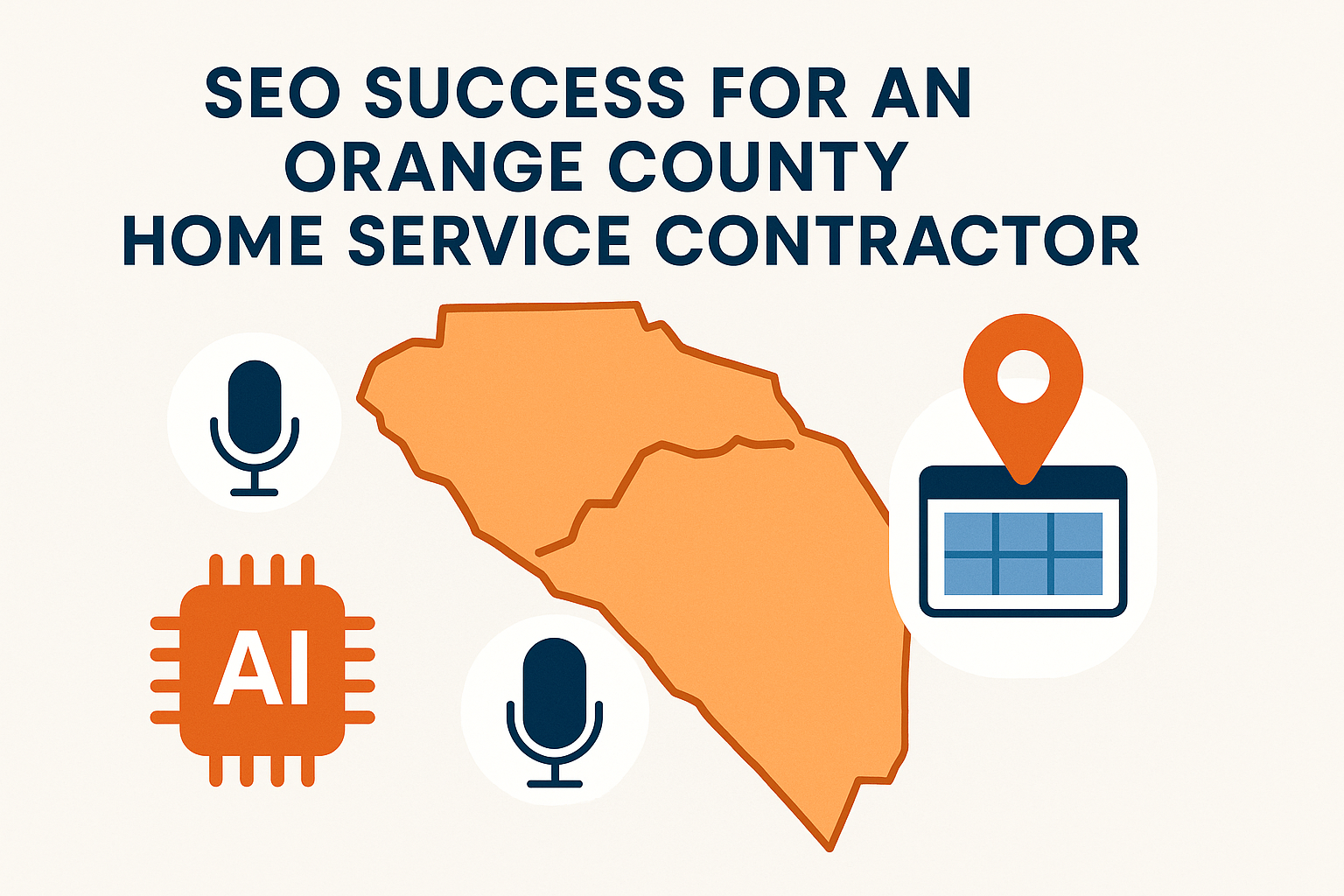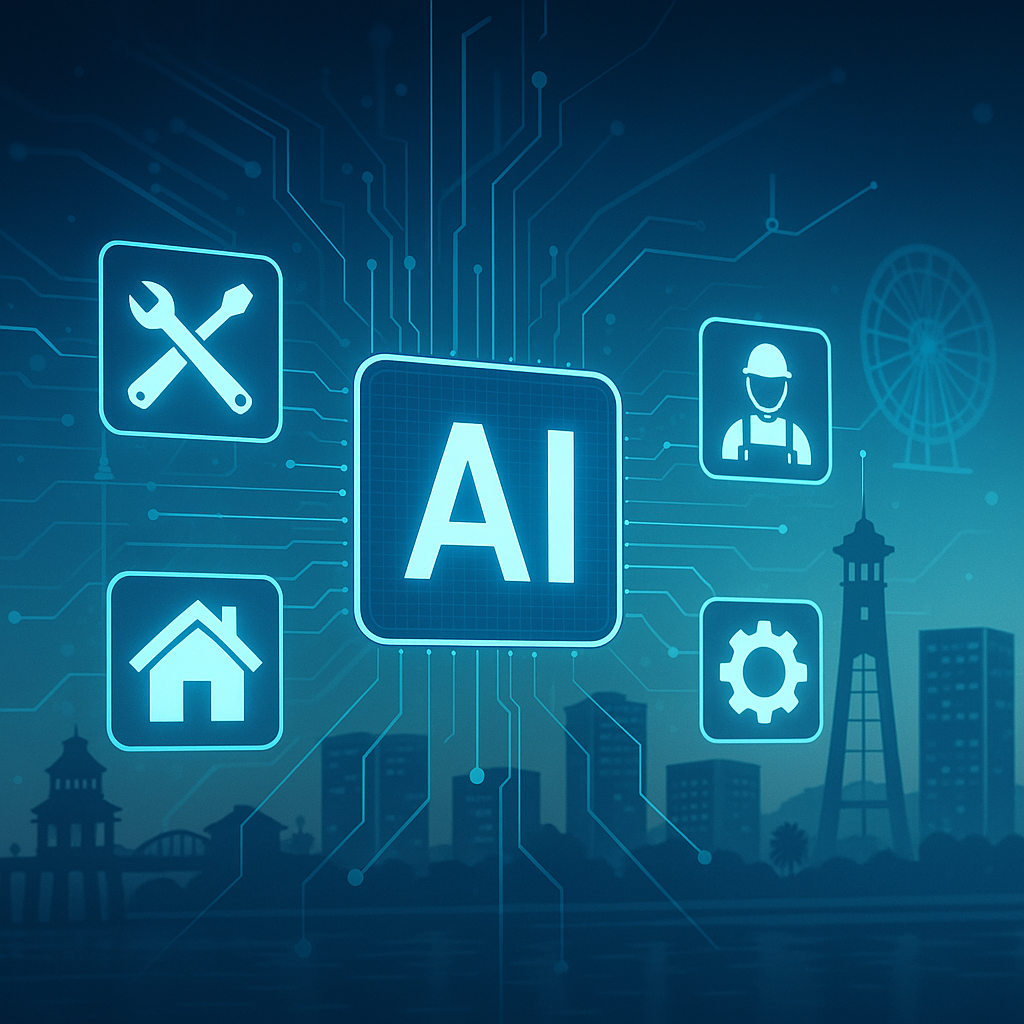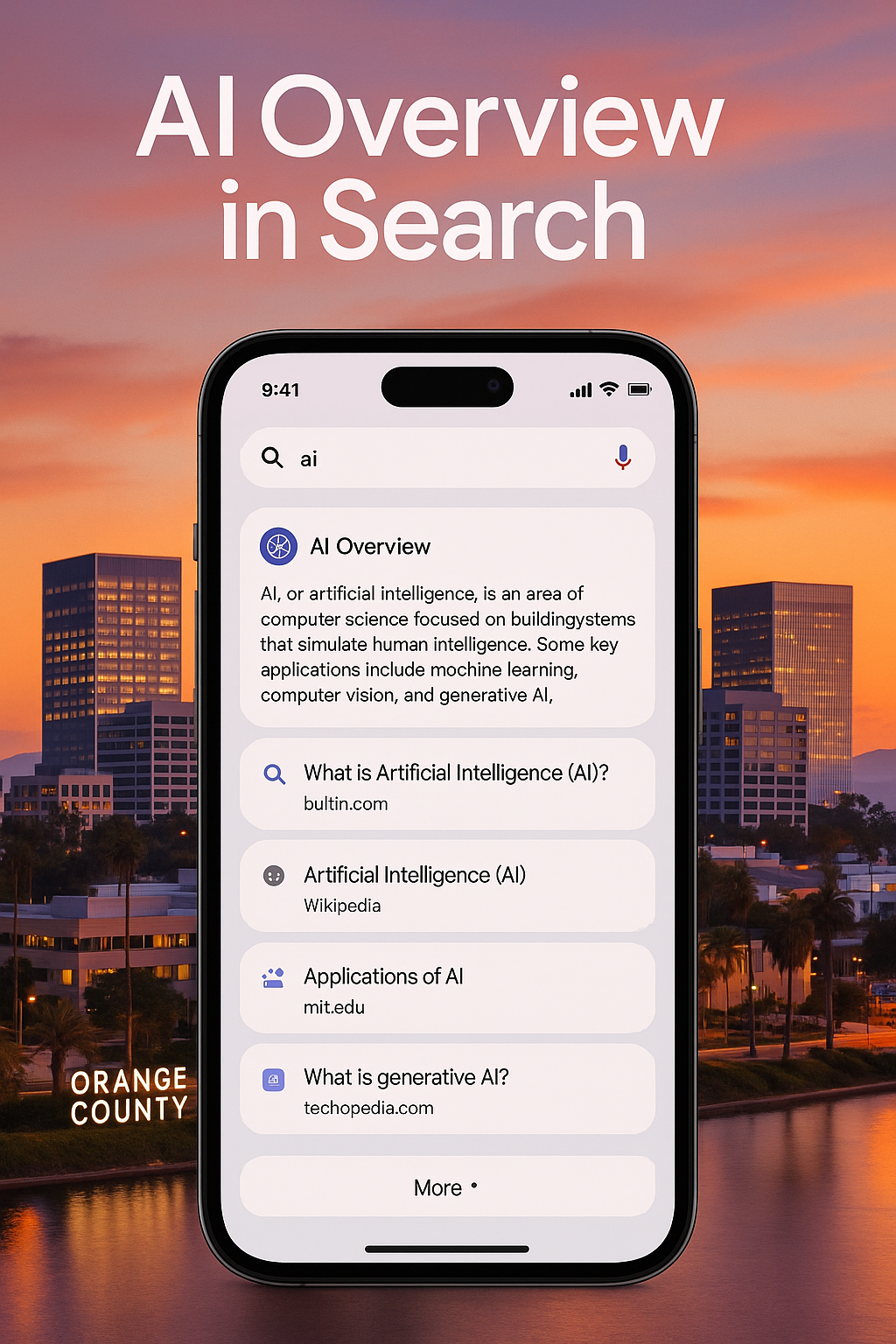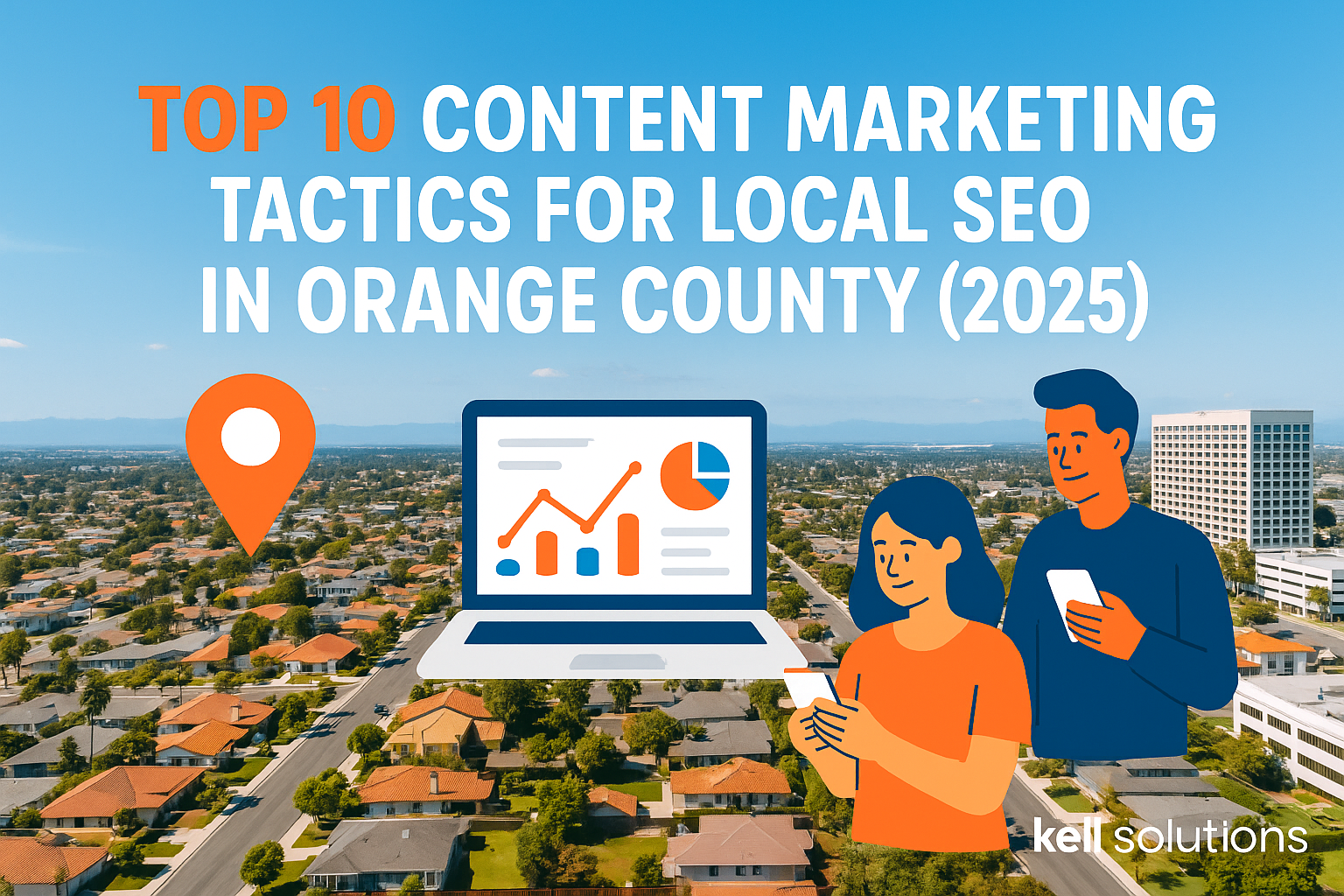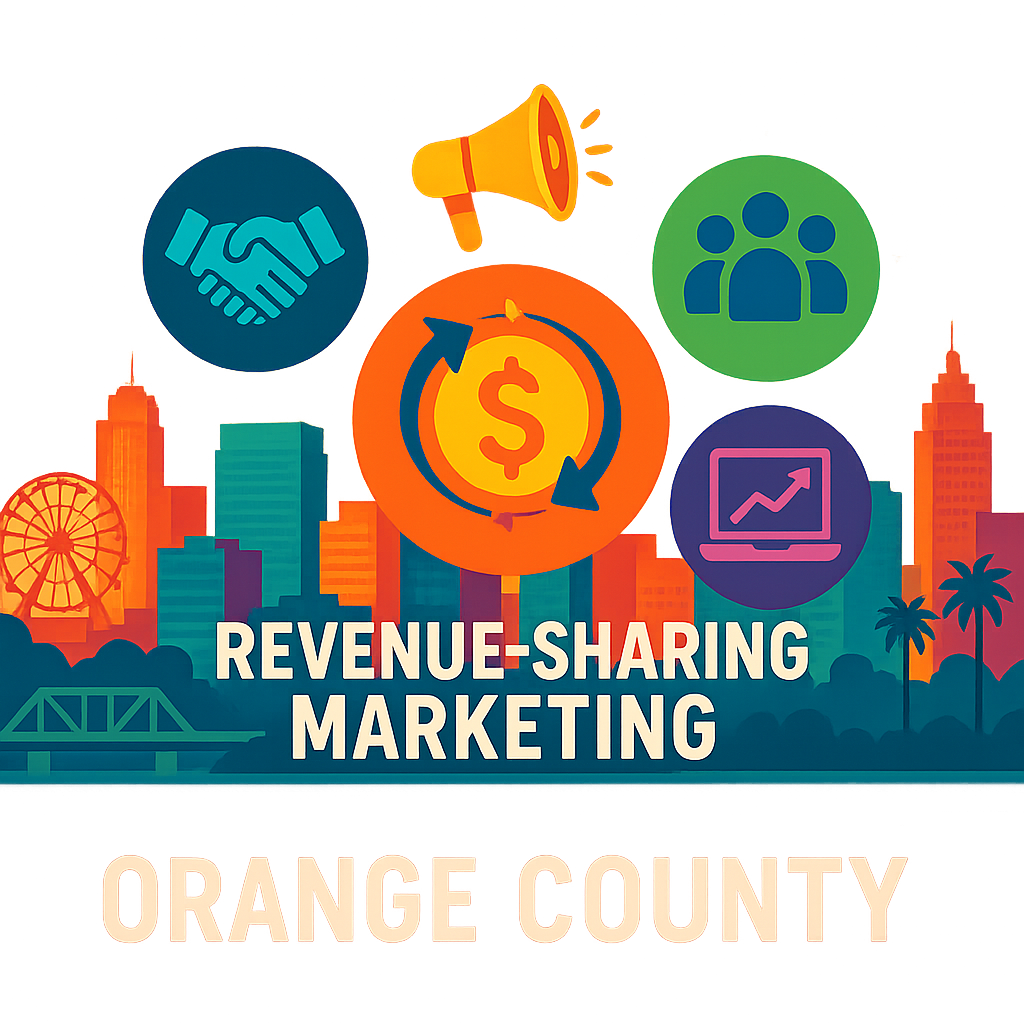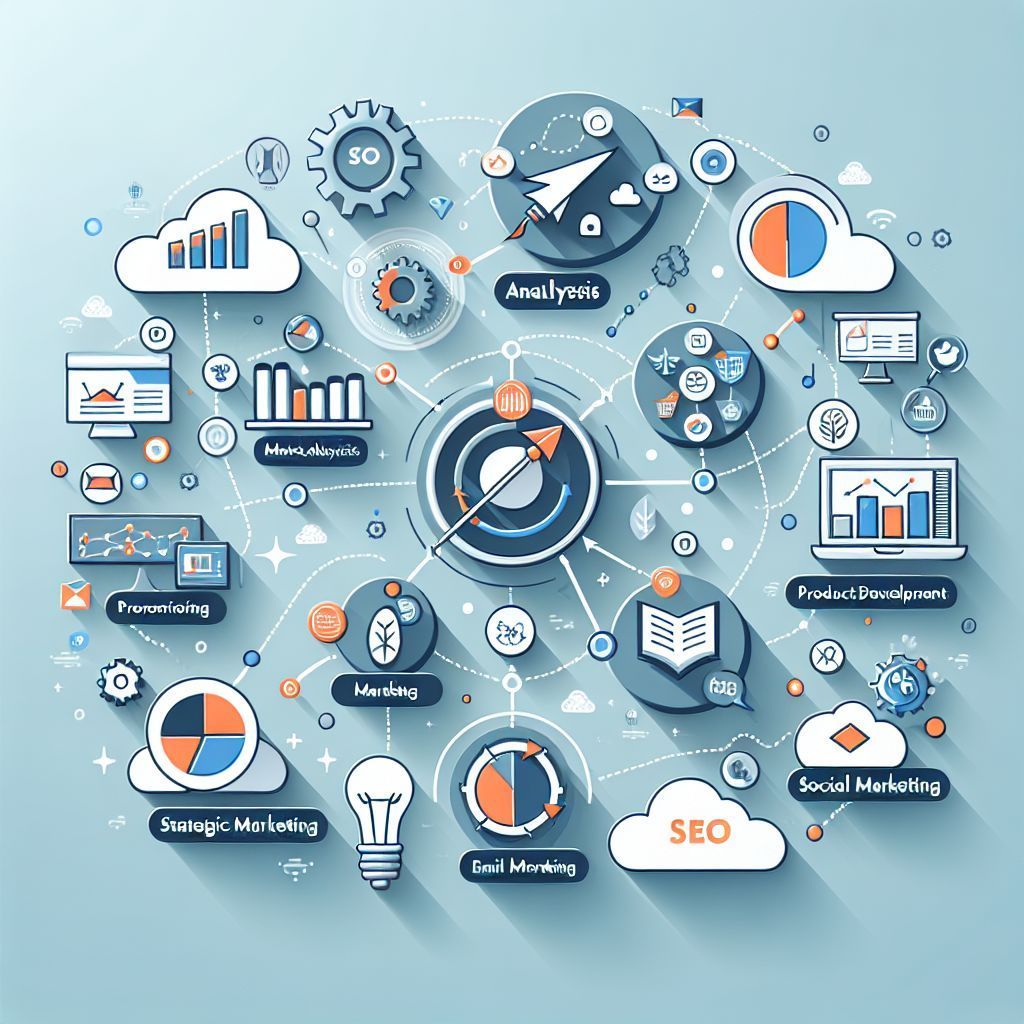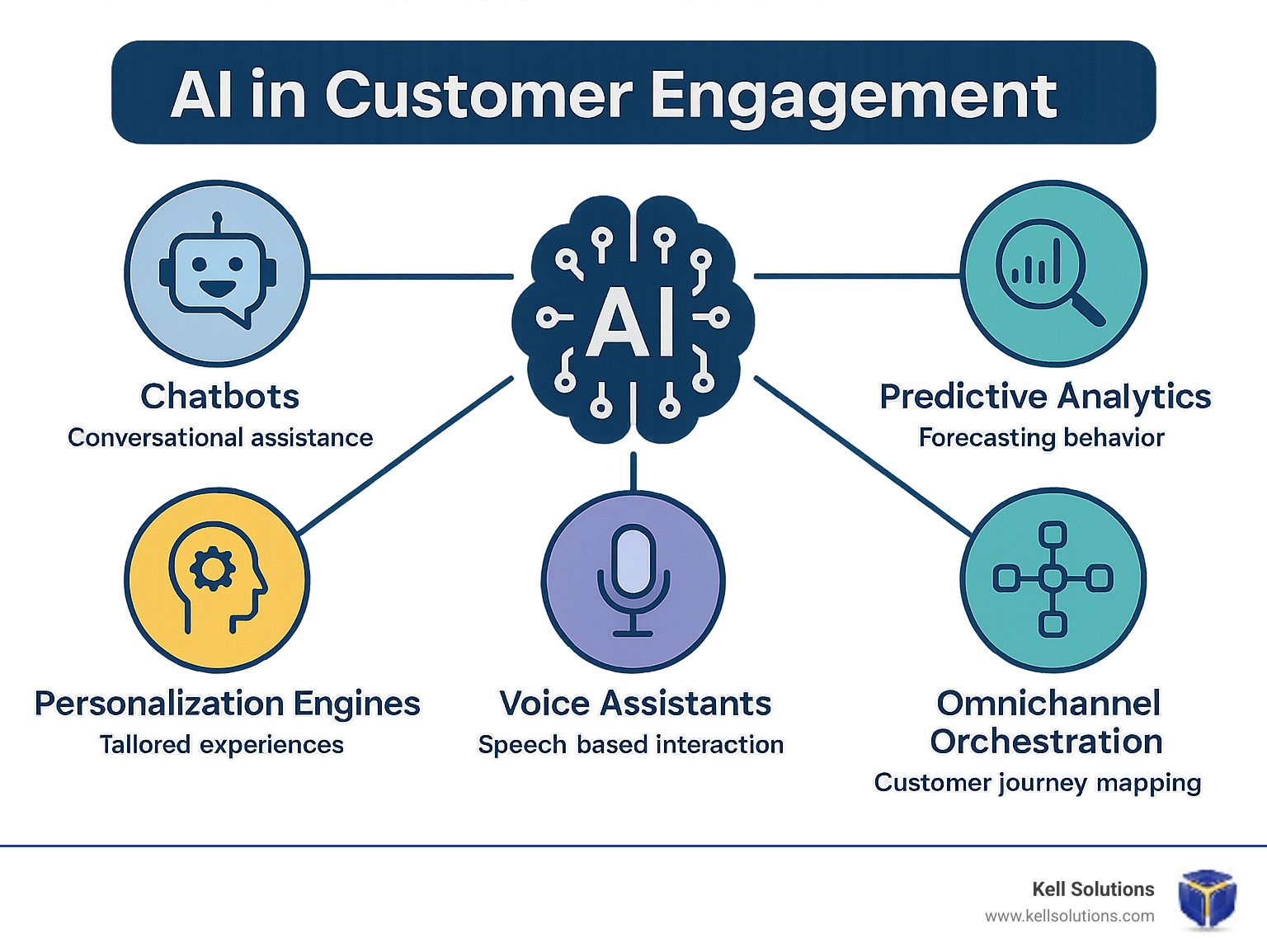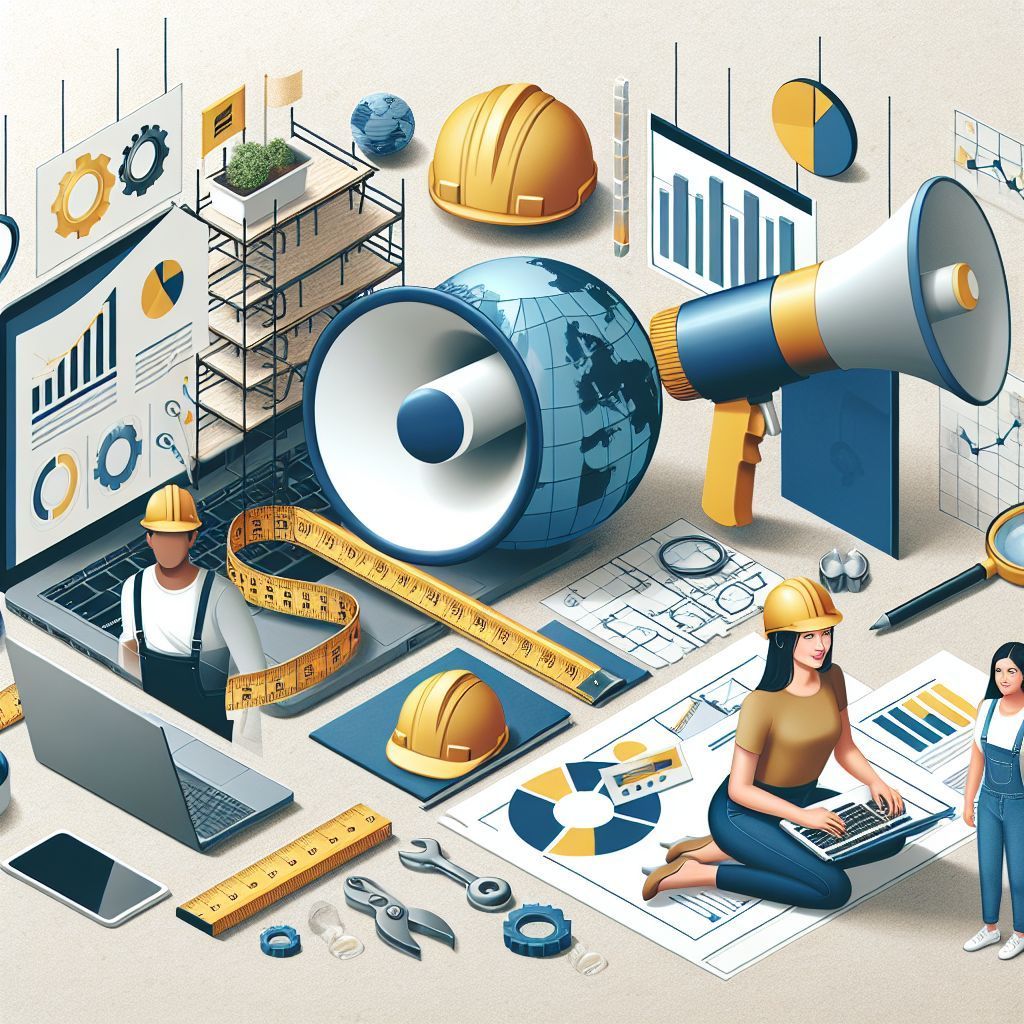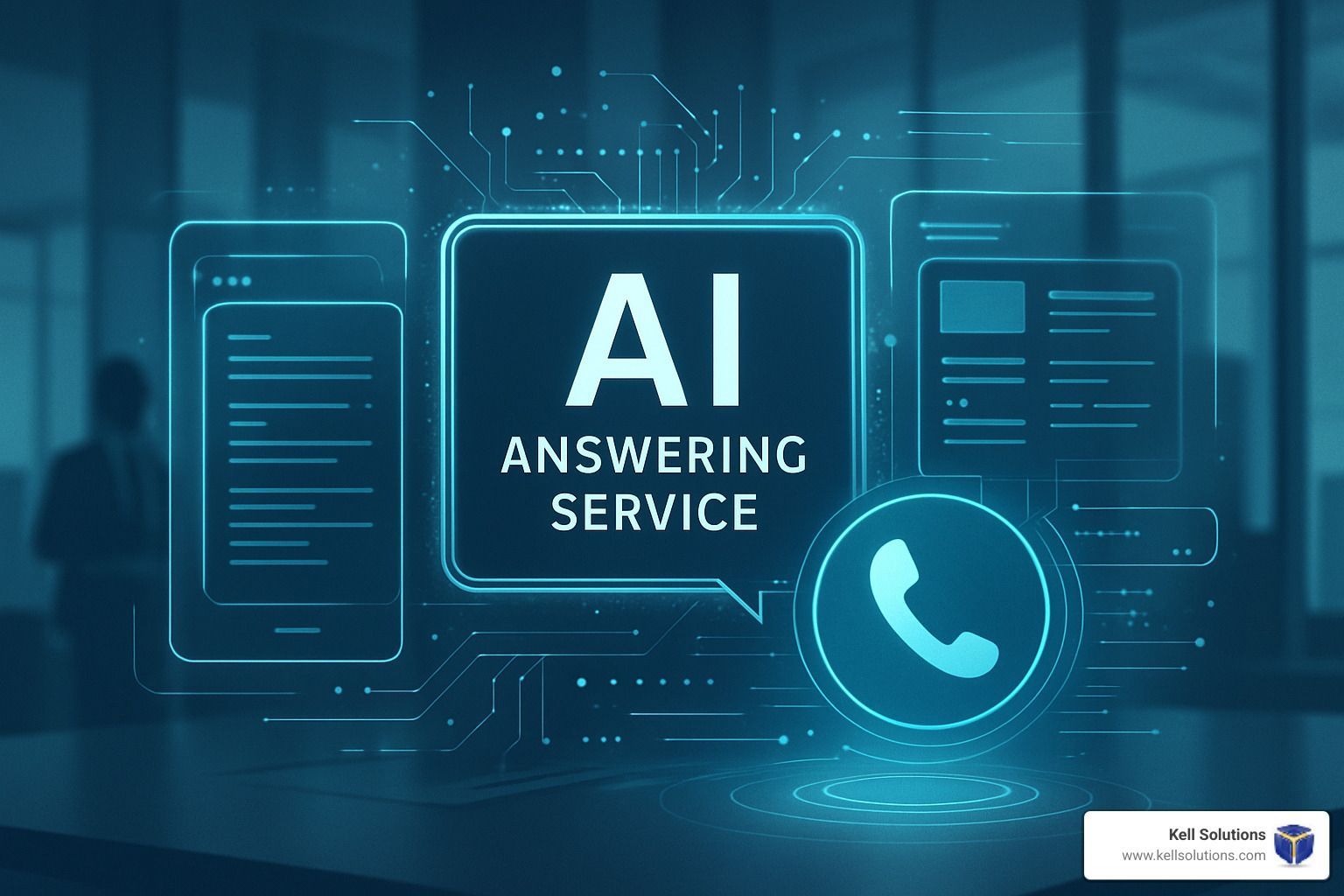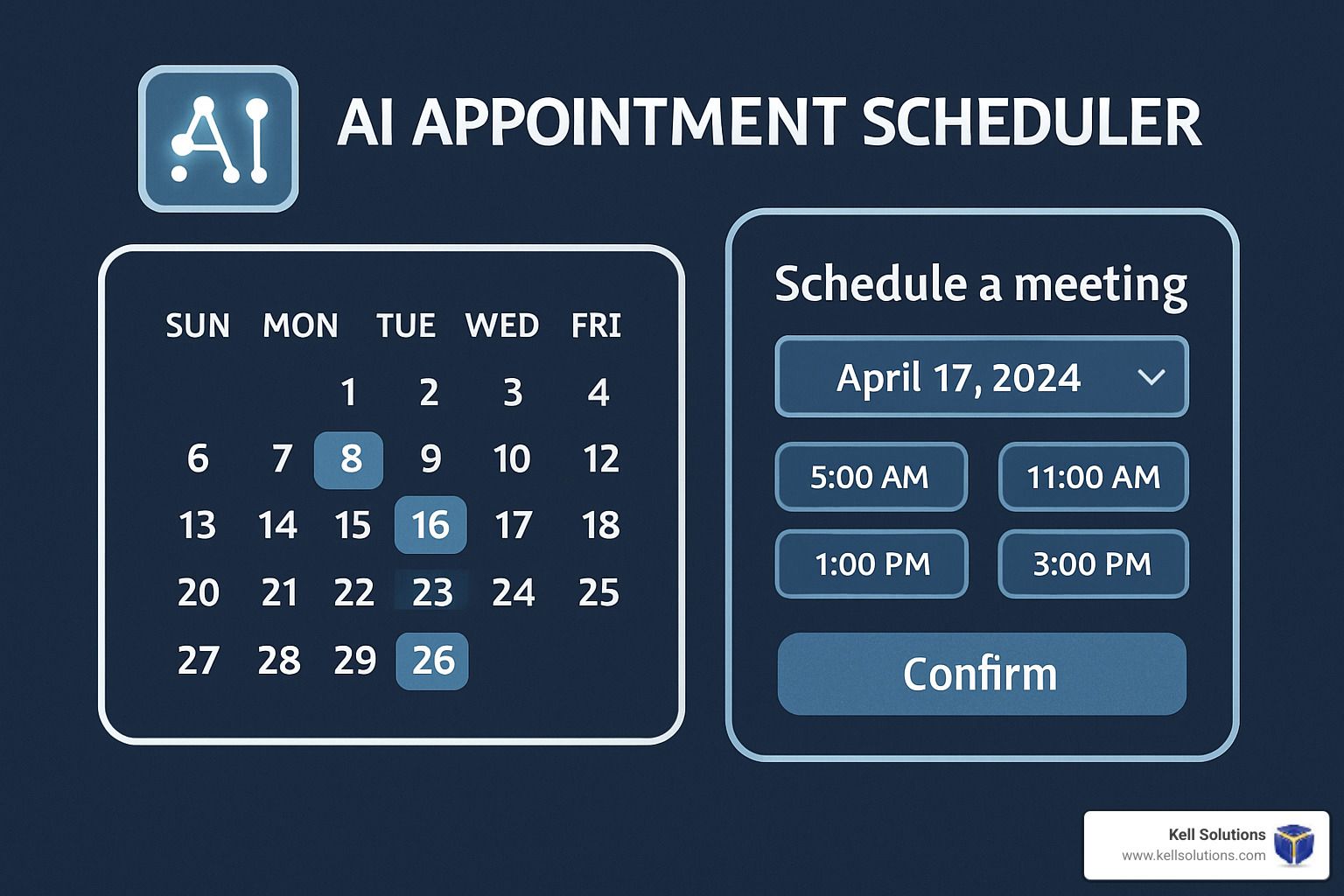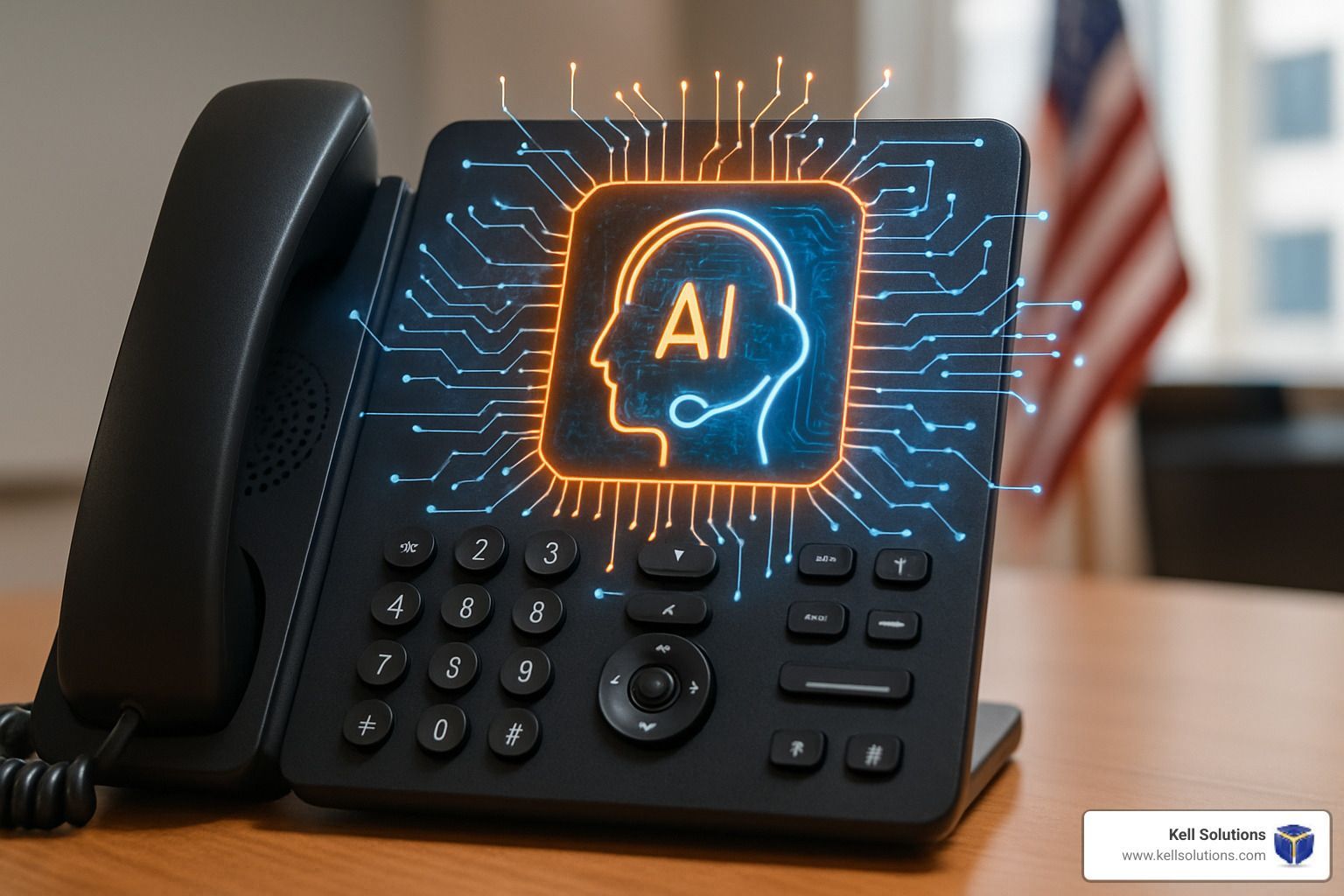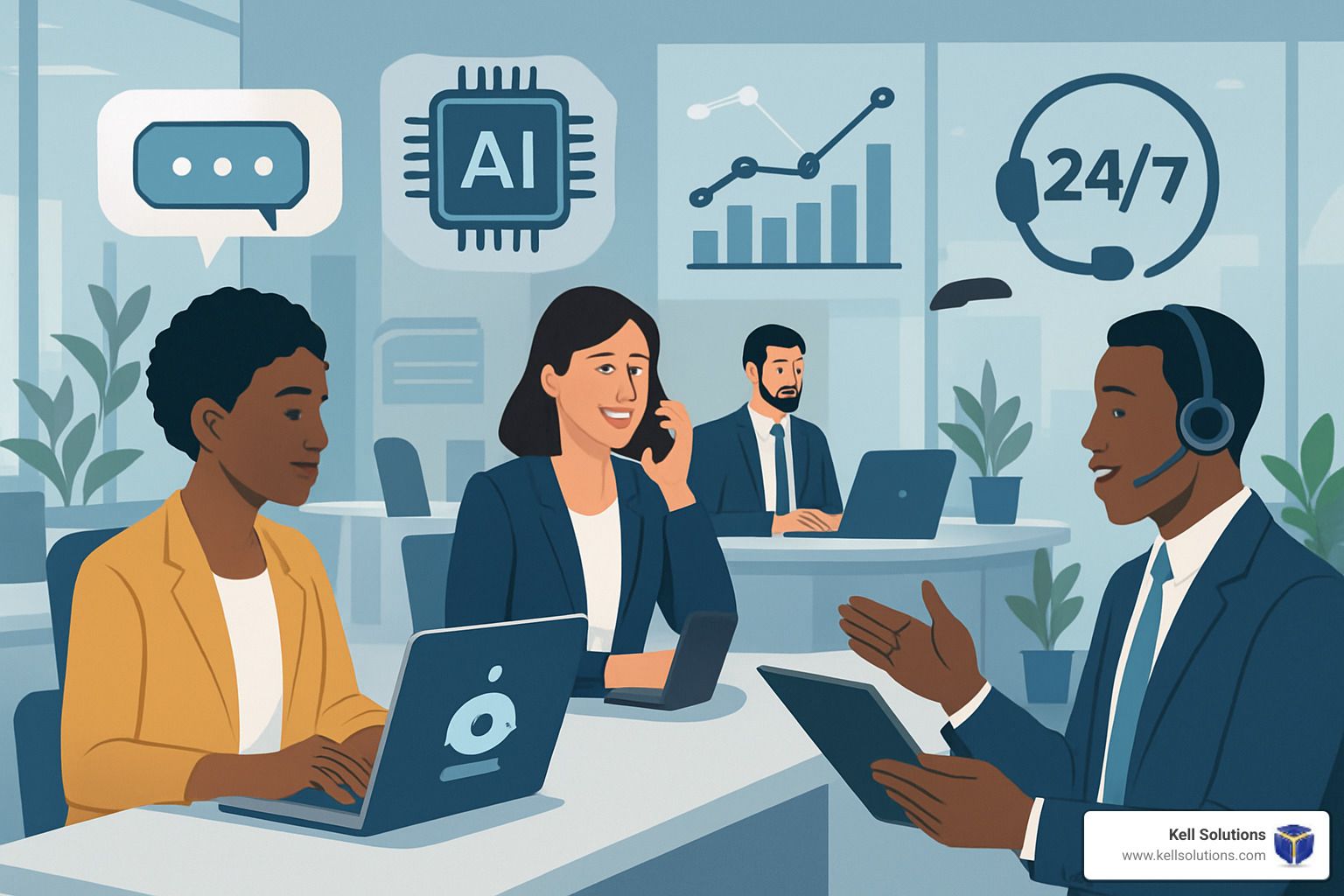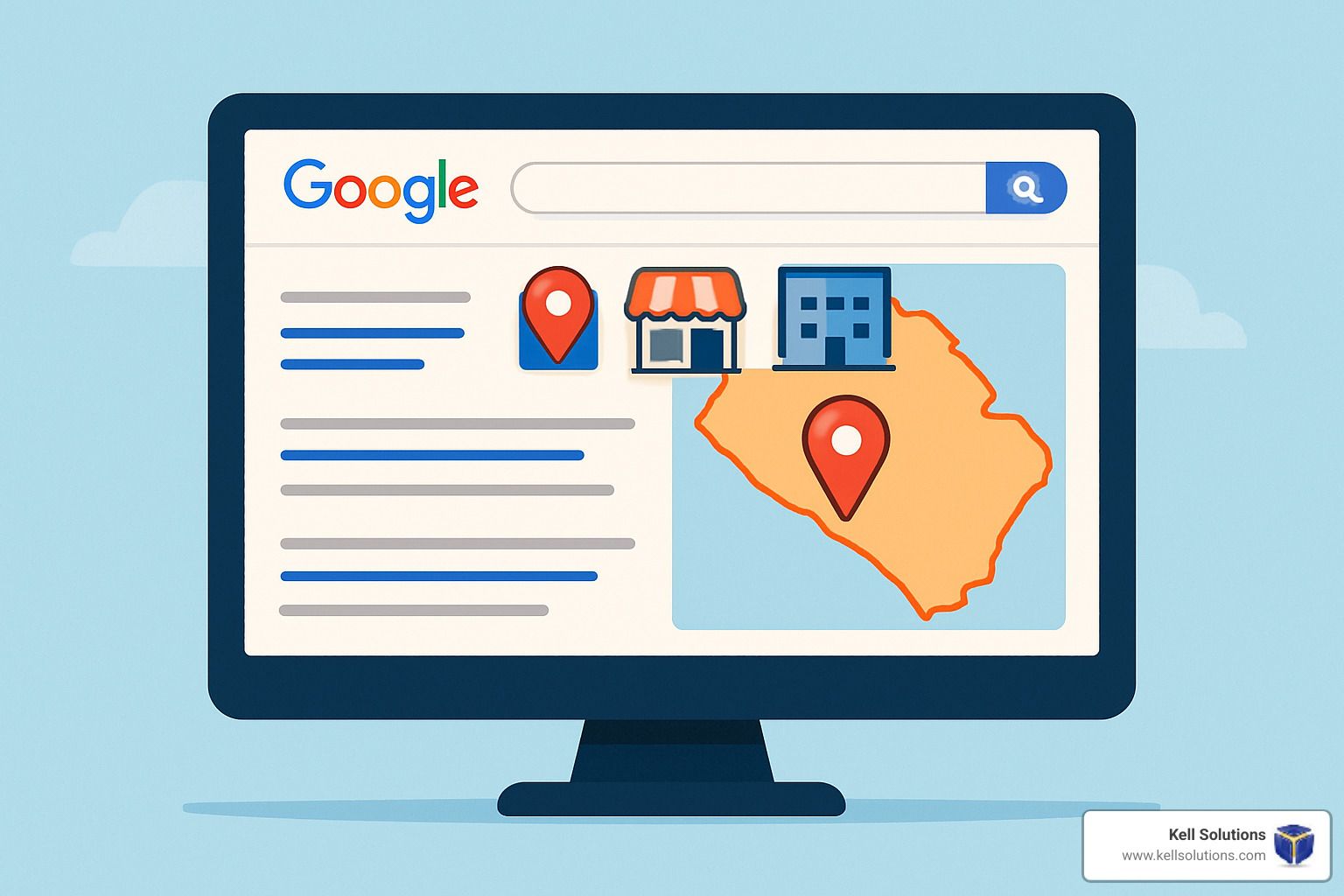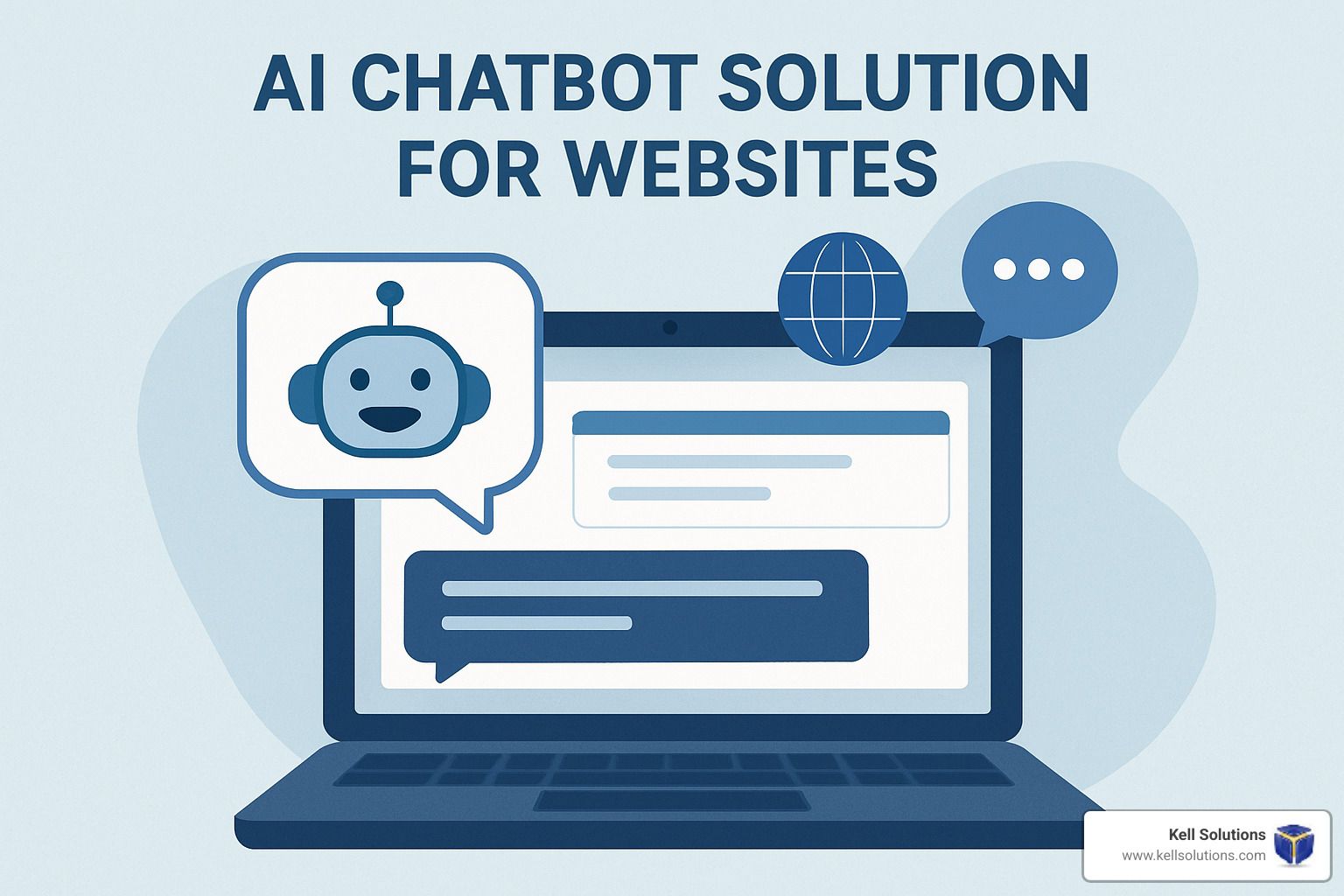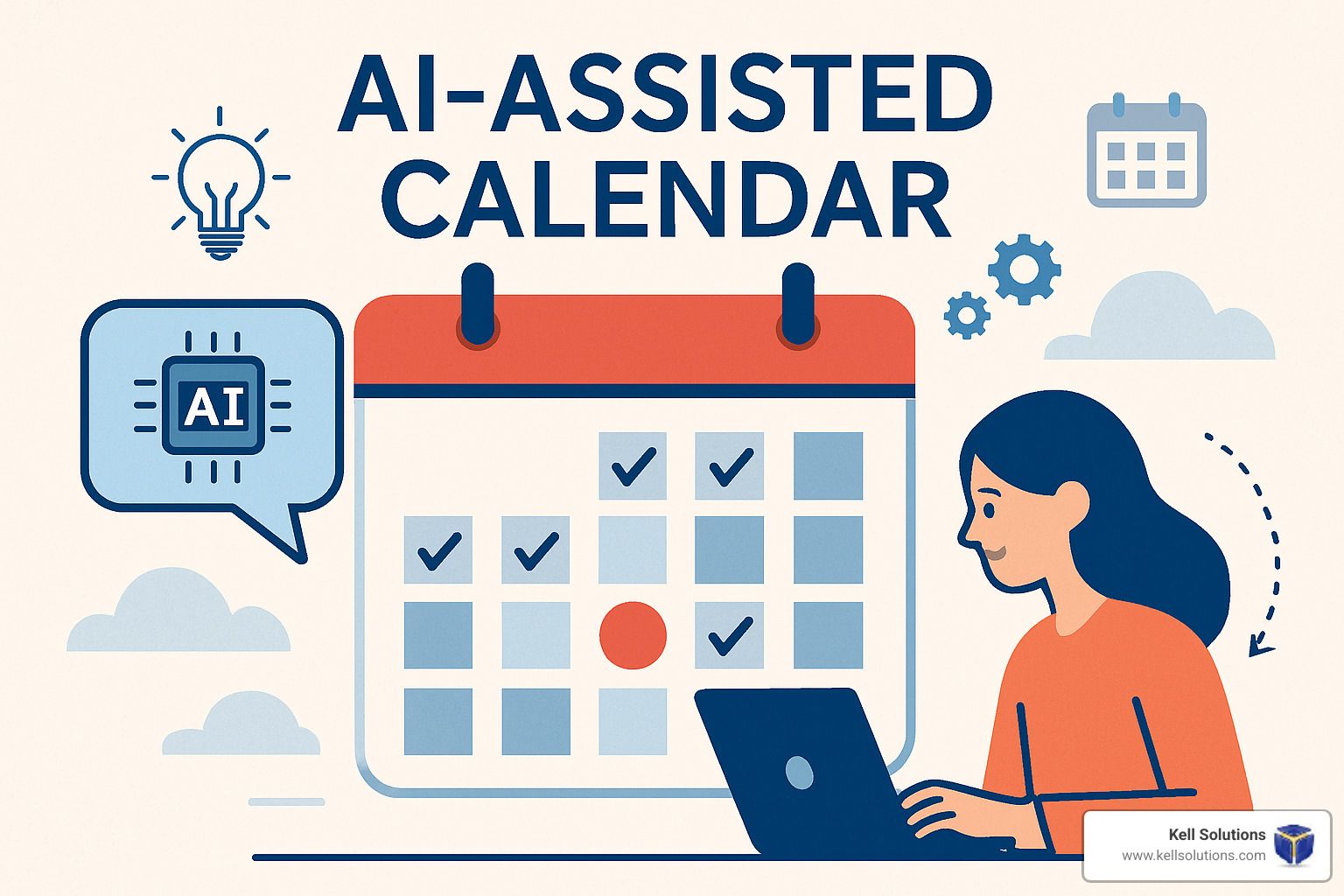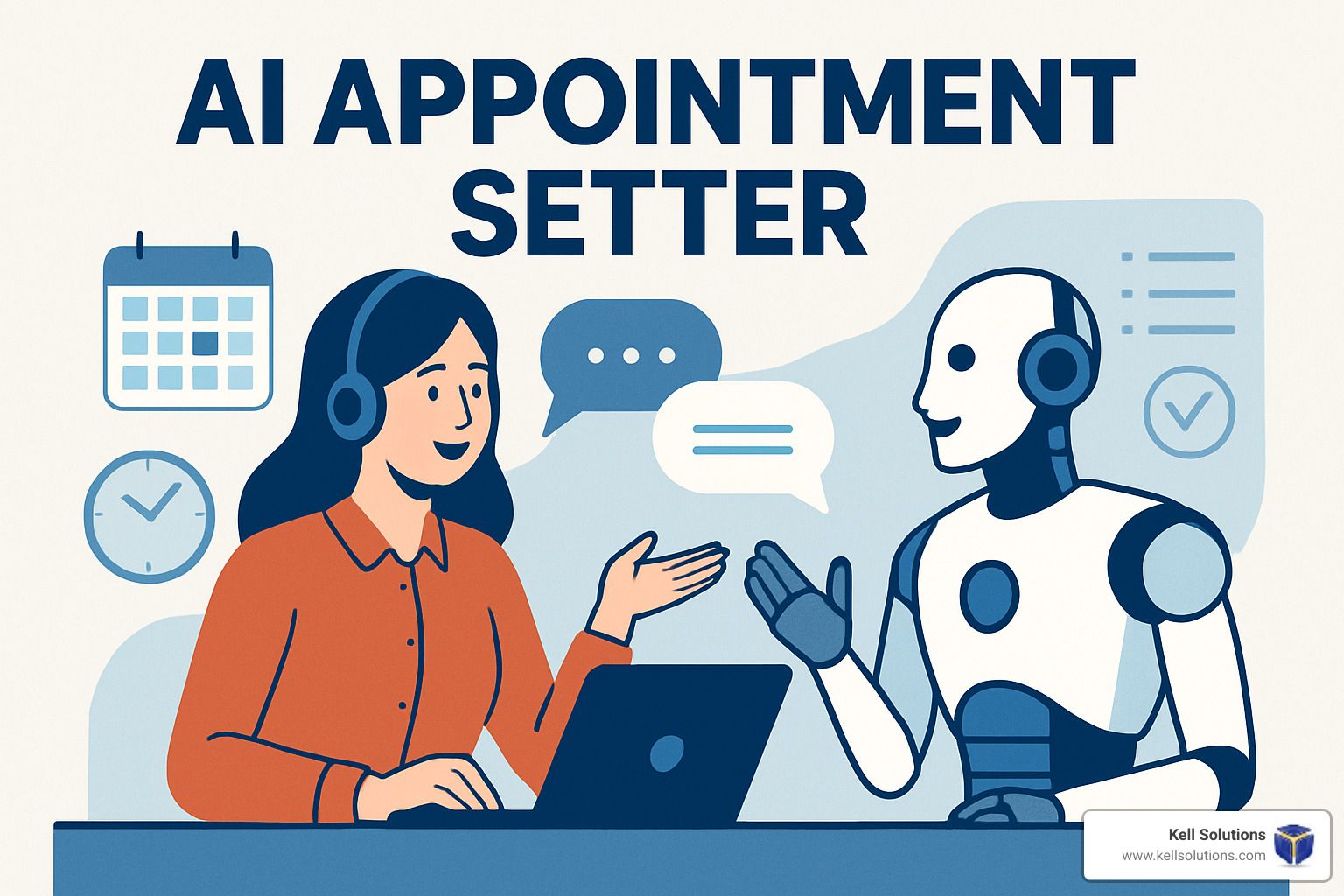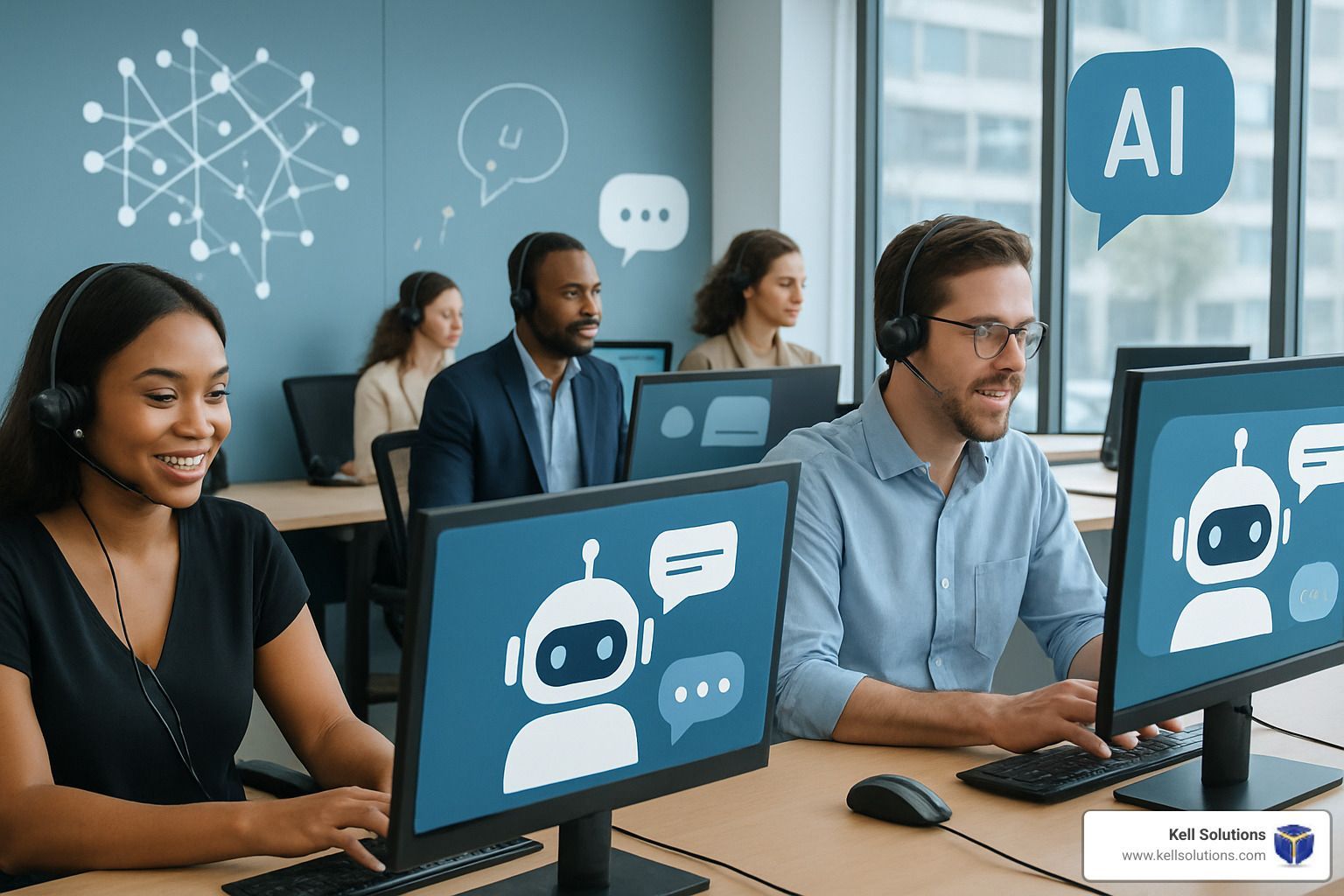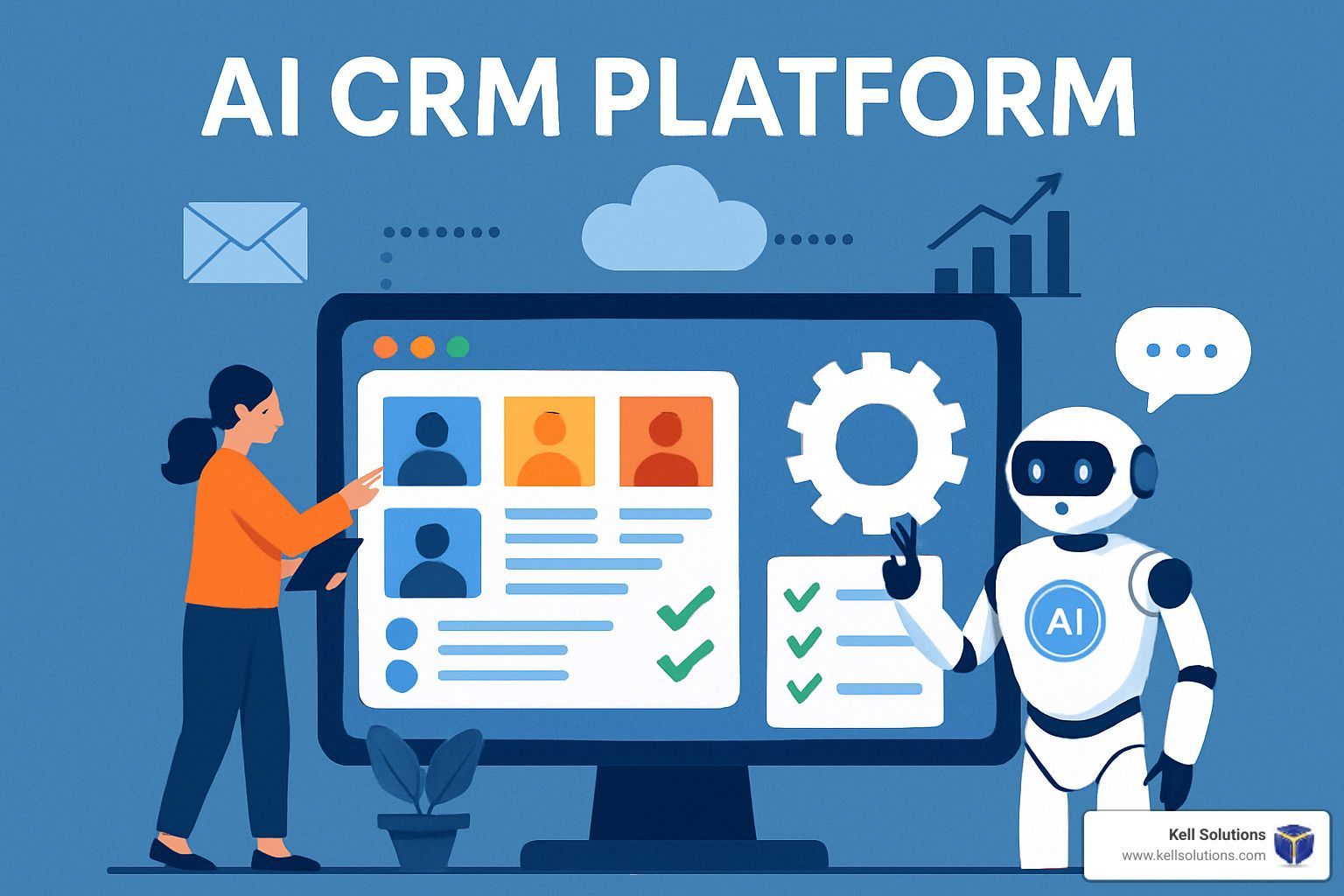AI Answering Service Myths
Is AI Really Going to Replace Human Connection?

Key Takeaways
- AI answering services enhance customer service by handling routine queries, freeing up human agents for complex tasks.
- AI Answering Service Myths - Truth:It's not a replacement for human jobs; it complements human efforts in customer service roles.
- Many AI Answering Service myths, such as its complexity and cost, are unfounded; small businesses can implement AI effectively.
- AI technologies can improve customer experience through data-driven insights and personalized service.
- Real-world examples show AI's capability to enhance human creativity and problem-solving in business.
In today's fast-paced world, customer service is evolving rapidly, and AI answering services are at the forefront of this transformation. However, many misconceptions about AI persist, clouding its true potential. Let's dive into these myths and uncover the facts.
Separating Fact from Fiction:AI Answering Services
When it comes to AI in customer service, the first step is to separate fact from fiction. Many people fear that AI will replace human jobs or that it's too complicated and costly for small businesses. These myths can hold companies back from embracing technology that could greatly enhance their customer service capabilities.
The Growing Role of AI in Customer Service
AI is revolutionizing customer service by providing quick, accurate responses to customer queries. This not only improves customer satisfaction but also allows human agents to focus on more complex issues that require a personal touch. AI can handle repetitive tasks such as answering frequently asked questions or routing calls to the appropriate department, freeing up human resources for higher-value interactions.
AI Answering Service Myths & Common Misunderstandings
Despite its benefits, AI is often misunderstood. One common myth is that AI is only about automation and self-service. In reality, AI can provide valuable insights through data analytics, helping businesses understand customer needs better and tailor their services accordingly. Another misconception is that AI is too expensive and complex for small businesses. However,cloud-based solutions have made AI more accessible and affordable than ever before.
AI Doesn't Replace Human Jobs
One of the biggest fears surrounding AI is that it will replace human jobs. However, this is far from the truth. AI is designed to assist and enhance human capabilities, not replace them. By handling routine inquiries, AI allows human agents to focus on tasks that require emotional intelligence and complex problem-solving skills.
For example, consider a call center where AI handles basic queries such as account balances or payment due dates. This allows human agents to spend more time addressing customer complaints or troubleshooting technical issues, leading to improved customer satisfaction and loyalty.
- AI handles routine tasks, freeing up human agents for complex interactions.
- Human agents provide emotional intelligence and personalized service.
- AI and humans work together to improve overall customer experience.
Why Humans Are Still Essential in AI-Driven Call Centers
Humans are irreplaceable when it comes to understanding context, emotions, and building relationships. AI may be able to process data and generate responses quickly, but it lacks the ability to empathize with customers or understand the nuances of human communication. This is where human agents come in, providing the empathy and understanding that AI cannot replicate.
Moreover, human agents can use AI-generated insights to make informed decisions and offer personalized service. By combining the speed and efficiency of AI with the empathy and creativity of humans, businesses can deliver exceptional customer experiences.
Case Studies of Human-AI Collaboration
In practice, many companies have successfully integrated AI into their customer service operations, resulting in significant improvements. For instance, a telecommunications company implemented AI to handle basic customer inquiries, which reduced call wait times and allowed human agents to focus on more complex issues. This not only improved customer satisfaction but also increased employee engagement, as agents felt more empowered to solve challenging problems.
Another example is a retail company that used AI to analyze customer feedback and identify trends. This information helped the company improve its products and services, leading to increased customer loyalty and sales. These examples demonstrate the power of AI-human collaboration in enhancing customer service.
AI Isn't Only About Self-Service Automation
Another common myth is that AI is solely focused on self-service automation. While AI can certainly automate routine tasks, its capabilities extend far beyond that. AI can provide valuable insights through data analysis, helping businesses understand customer preferences and behavior.
By analyzing customer data, AI can identify patterns and trends, allowing businesses to make data-driven decisions. This can lead to more personalized service, as companies can tailor their offerings to meet the specific needs and preferences of their customers. As a result, AI can significantly enhance the customer experience, going beyond simple automation.
Data-Driven Decision Making with AI
Data is a powerful tool, and AI can help businesses harness its full potential. By analyzing customer data, AI can provide insights into customer behavior, preferences, and needs. This information can help businesses make informed decisions and improve their products and services.
For example, a company might use AI to analyze customer feedback and identify common complaints or suggestions. This information can then be used to make improvements or develop new products that better meet customer needs. By using data to drive decision-making, businesses can stay ahead of the competition and deliver exceptional customer experiences.
AI Technologies Are Not as Complicated As They Seem
There's a common belief that AI technologies are overwhelmingly complex, accessible only to large corporations with deep pockets. This couldn't be further from the truth. AI has become increasingly user-friendly and accessible, even for small businesses. The key lies in understanding how to leverage these technologies effectively.
- AI tools often come with user-friendly interfaces, making them easy to implement.
- Many AI solutions offer customizable options to fit specific business needs.
- Training resources are widely available, helping businesses get up to speed quickly.
With the right approach,small businesses can harness the power of AI without needing a dedicated tech team. The barriers to entry are lower than ever, thanks to advances in technology and the availability of cloud-based solutions.
Most importantly, businesses should focus on selecting AI tools that align with their specific goals. Whether it's improving customer service, streamlining operations, or gaining insights from data, there's an AI solution that can help.
Accessibility of AI for Small Businesses
Small businesses often assume that AI is out of reach due to cost and complexity. However, many AI solutions are designed with small businesses in mind. These tools are often affordable and easy to integrate into existing systems.
For instance, AI chatbots can be deployed on a website to handle customer inquiries, providing 24/7 support without the need for additional staff. Similarly, AI-driven analytics platforms can help businesses make sense of their data, providing insights that were previously only available to larger companies.
How Cloud-Based Solutions Simplify AI Deployment
Cloud-based solutions have revolutionized the way businesses access and implement AI technologies. By hosting AI tools in the cloud, businesses can avoid the need for costly hardware and infrastructure. This makes AI more accessible and affordable for companies of all sizes.
Cloud-based AI solutions also offer scalability, allowing businesses to start small and expand their use of AI as needed. This flexibility is particularly beneficial for small businesses, as it enables them to adapt to changing demands and grow their AI capabilities over time.
The Cost Myth: AI Implementation Doesn't Break the Bank
Many businesses shy away from AI due to perceived high costs. However, AI implementation can be surprisingly affordable, especially with the rise of cloud-based solutions and pay-as-you-go pricing models. These options allow businesses to pay only for what they use, making AI a cost-effective investment.
Cost-Effective Strategies to Integrate AI
To integrate AI without breaking the bank, businesses should focus on identifying specific areas where AI can add value. By starting small and targeting key pain points, companies can maximize the impact of their AI investments.
For example, a business might begin by implementing AI to automate routine tasks such as data entry or customer inquiries. This can lead to immediate cost savings and efficiency gains, freeing up resources for other areas of the business.
ROI Benefits from AI in Business
Investing in AI can yield significant returns, both in terms of cost savings and increased revenue. By automating routine tasks, businesses can reduce labor costs and improve efficiency. Additionally, AI can provide valuable insights that drive better decision-making and enhance customer experiences. Click here for Missed Call ROI Calculator.
Consider a retail company that uses AI to analyze customer data and predict trends. By understanding customer preferences, the company can tailor its marketing efforts and product offerings, leading to increased sales and customer loyalty. This kind of data-driven approach can provide a substantial return on investment.
Furthermore, AI can help businesses stay competitive in a rapidly changing market. By embracing AI technologies, companies can improve their agility and responsiveness, positioning themselves for long-term success.
AI Capabilities Extend Beyond Tech Giants
While tech giants like Google and Amazon are well-known for their AI capabilities, AI is not limited to these industry leaders. In fact, AI is being adopted across a wide range of industries, from healthcare to finance to manufacturing. This widespread adoption demonstrates the versatility and potential of AI technologies.
AI Across Different Industries
In healthcare, AI is being used to analyze medical data and improve patient outcomes. For example, AI algorithms can assist in diagnosing diseases or predicting patient responses to treatment. In finance, AI is used for fraud detection and risk management, helping companies protect their assets and make informed decisions.
In manufacturing, AI is driving efficiency and innovation through predictive maintenance and quality control. By identifying potential issues before they occur, AI can help companies reduce downtime and improve product quality. These examples highlight the diverse applications of AI across various sectors.
Real-World Examples of AI Applications
Let's look at some real-world examples of AI in action. A logistics company implemented AI to optimize its delivery routes, resulting in significant cost savings and improved delivery times. By analyzing traffic patterns and weather conditions, AI helped the company make smarter routing decisions, enhancing its overall efficiency.
Another example is a hospitality company that used AI to personalize guest experiences. By analyzing guest preferences and feedback, the company was able to tailor its services to meet individual needs, resulting in higher customer satisfaction and repeat business. For more insights, explorecommon misconceptions on AI-powered customer service.
These examples illustrate how AI can be applied in practical ways to solve real-world problems and drive business success. By embracing AI, companies can unlock new opportunities and achieve their goals more effectively.
Enhancing Human Creativity and Problem-Solving
AI has the potential to significantly enhance human creativity and problem-solving capabilities. By automating routine tasks and providing data-driven insights, AI frees up human agents to focus on more complex and creative endeavors. This allows businesses to innovate and adapt to changing market demands more effectively.
For instance, AI can help identify emerging trends and customer preferences, enabling companies to develop new products or services that meet these needs. By leveraging AI's analytical capabilities, businesses can make informed decisions and explore new opportunities for growth.
AI as a Tool for Innovation
Innovation is the lifeblood of any successful business, and AI can be a powerful tool in driving innovation. By providing insights into customer behavior and market trends, AI enables businesses to identify new opportunities and develop innovative solutions to meet customer needs.
For example, a company might use AI to analyze customer feedback and identify unmet needs or emerging trends. This information can be used to develop new products or services that address these needs, giving the company a competitive edge in the market.
Combining AI and Human Insights for Better Outcomes
The combination of AI and human insights can lead to better outcomes for businesses. While AI provides data-driven insights and analytical capabilities, human agents bring creativity, empathy, and a deep understanding of customer needs. By working together, AI and humans can deliver exceptional customer experiences and drive business success.
For example, a marketing team might use AI to analyze customer data and identify target segments. The team can then use this information to develop personalized marketing campaigns that resonate with customers, leading to increased engagement and sales.
FAQs
As we explore the role ofAI in customer service, several common questions arise. Addressing these questions can help clarify the benefits and capabilities of AI answering services.
By understanding the potential of AI, businesses can make informed decisions and leverage technology to enhance their customer service operations.
Let's address some of the most frequently asked questions aboutAI answering services:
What Are theKey Benefits of AI Answering Services?
AI answering services offer several key benefits, including improved efficiency, reduced wait times, and enhanced customer satisfaction. By automating routine inquiries, AI allows human agents to focus on more complex tasks, leading to faster resolution times and better customer experiences.
Additionally, AI provides valuable insights through data analysis, helping businesses understand customer needs and preferences. This information can be used to tailor services and improve customer satisfaction.
How Does AI Improve Customer Experience?
AI improves customer experience by providing quick, accurate responses to inquiries and personalizing interactions based on customer data. By analyzing customer behavior and preferences, AI can deliver tailored recommendations and solutions, enhancing the overall customer experience.
AI can handle multiple inquiries simultaneously, reducing wait times and ensuring customers receive timely assistance. This leads to higher customer satisfaction and loyalty.
Will AI Make Human Jobs Redundant in Call Centers?
AI is not designed to replace human jobs in call centers; rather, it complements human efforts by handling routine tasks and providing data-driven insights. This allows human agents to focus on more complex interactions that require emotional intelligence and problem-solving skills.
By working together, AI and human agents can deliver exceptional customer service, enhancing both efficiency and customer satisfaction. Therefore, AI is seen as an ally, not a replacement, for human agents in call centers.
"AI is designed to assist and enhance human capabilities, not replace them. By handling routine inquiries, AI allows human agents to focus on tasks that require emotional intelligence and complex problem-solving skills. For more insights, explorecommon misconceptions about AI-powered customer service."
Are AI Systems Difficult to Implement for Small Businesses?
AI systems are increasingly accessible and affordable for small businesses, thanks to advances in technology and the availability of cloud-based solutions. Many AI tools come with user-friendly interfaces and customizable options, making them easy to implement and integrate into existing systems. For more insights, you can explore someAI myths debunked that might help in understanding the potential of AI tools.
Small businesses can start small by targeting specific areas where AI can add value, such as automating routine tasks or analyzing customer data. With the right approach, AI can be a powerful tool for small businesses looking to enhance their customer service operations.
How Can AI FosterInnovation in Business?
AI fosters innovation by providing insights into customer behavior and market trends, enabling businesses to identify new opportunities and develop innovative solutions. By leveraging AI's analytical capabilities, companies can make informed decisions and explore new avenues for growth. For more insights, check out this article ondebunking AI myths.
For example, hire the best AI receptionist for small business that can help businesses identify emerging trends and customer preferences, allowing them to develop new products or services that meet these needs. By combining AI's data-driven insights with human creativity, businesses can drive innovation and stay competitive in a rapidly changing market.
AI answering services, like VoiceGenie AI, offer significant benefits for businesses looking to enhance their customer service operations. By dispelling common myths and understanding the true potential of AI, companies can leverage technology to improve efficiency, customer satisfaction, and overall business success.
📚 About the Author
Gregg Kell is a seasoned digital marketing strategist and founder of Kell Web Solutions, Inc., helping professional service firms grow through innovative AI-powered solutions like VoiceGenie AI. With over 20 years of experience in web development, lead generation, and business automation, Gregg is passionate about helping small businesses maximize growth and profitability through cutting-edge technologies.
When he’s not helping businesses boost their bottom line, Gregg enjoys life by the beach in Laguna Beach, California, with his wife Debbie, celebrating over 40 years of marriage and entrepreneurial adventures.
👉 Explore More from Gregg:
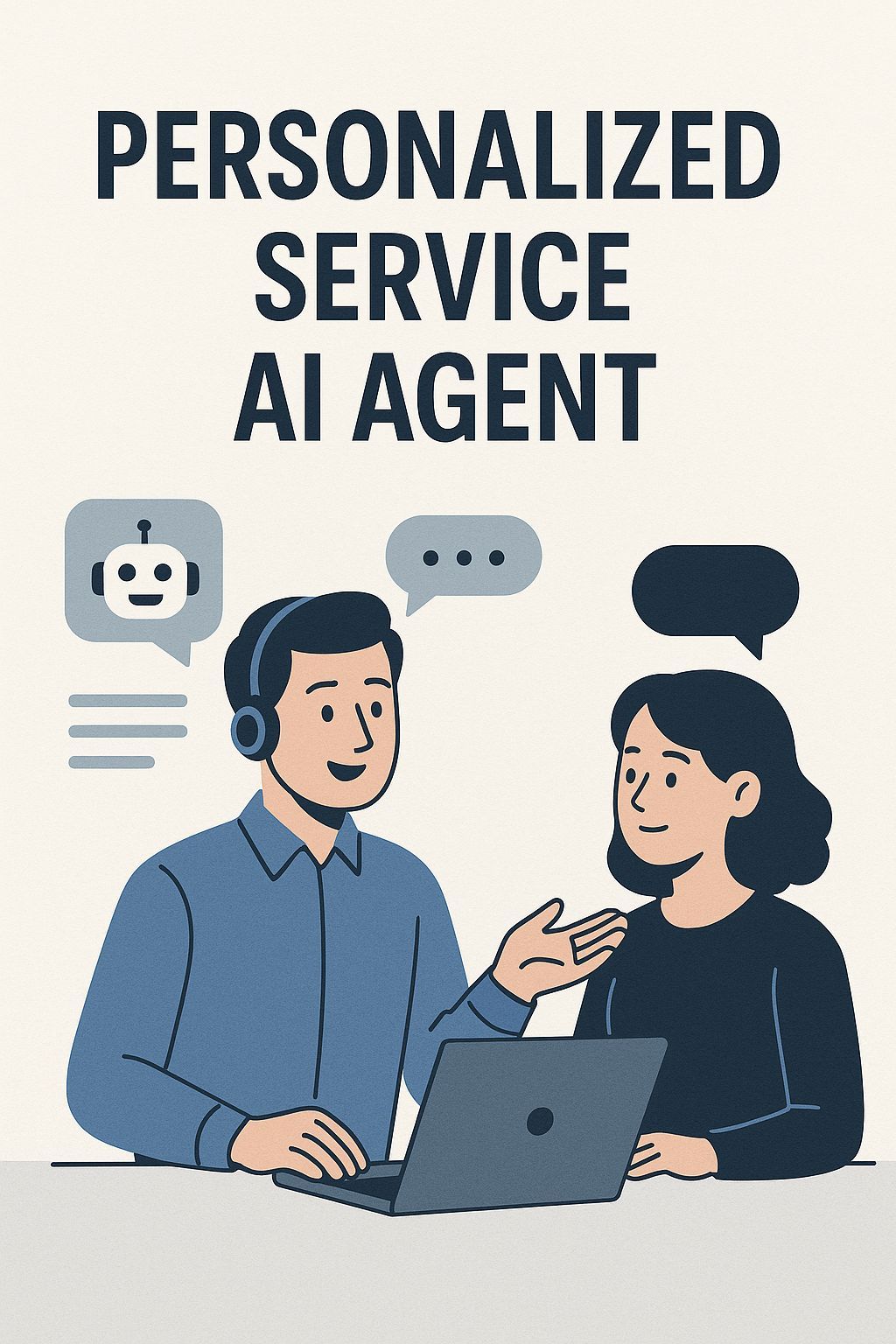

Orange County HVAC Google AI Overview Domination: 7 Proven Strategies to Capture Featured AI Results




